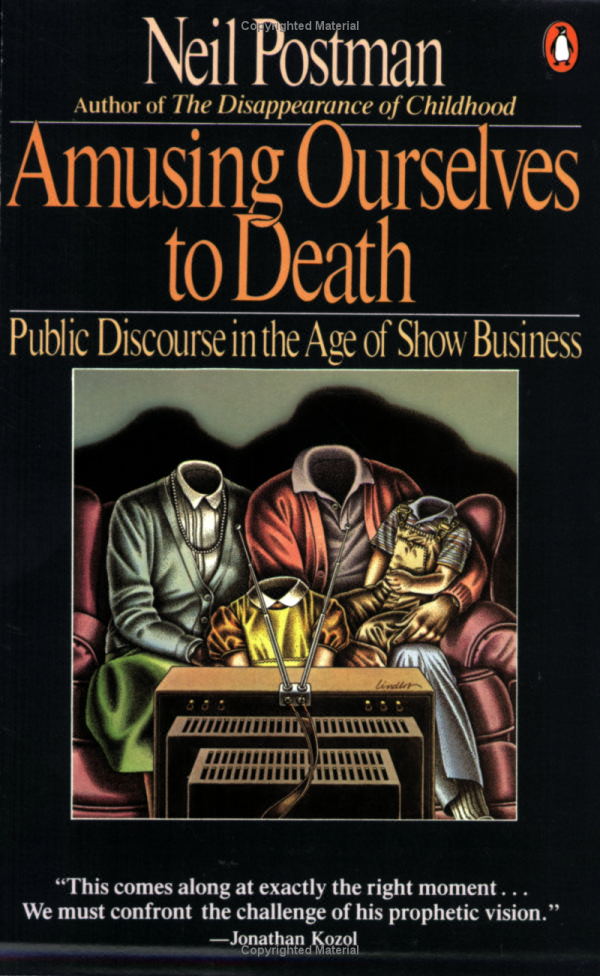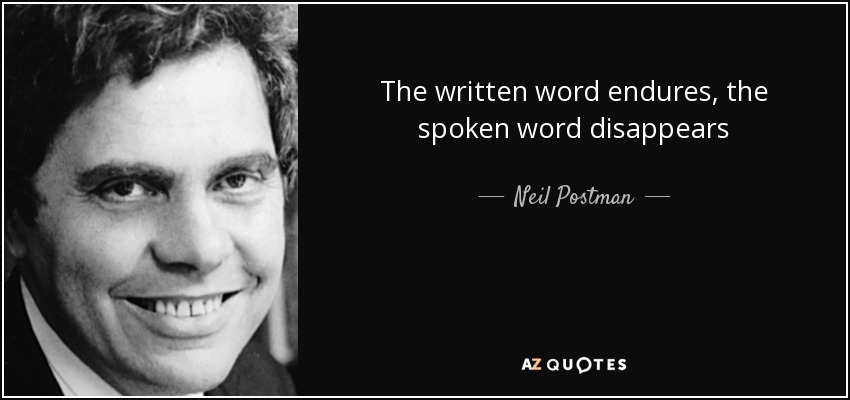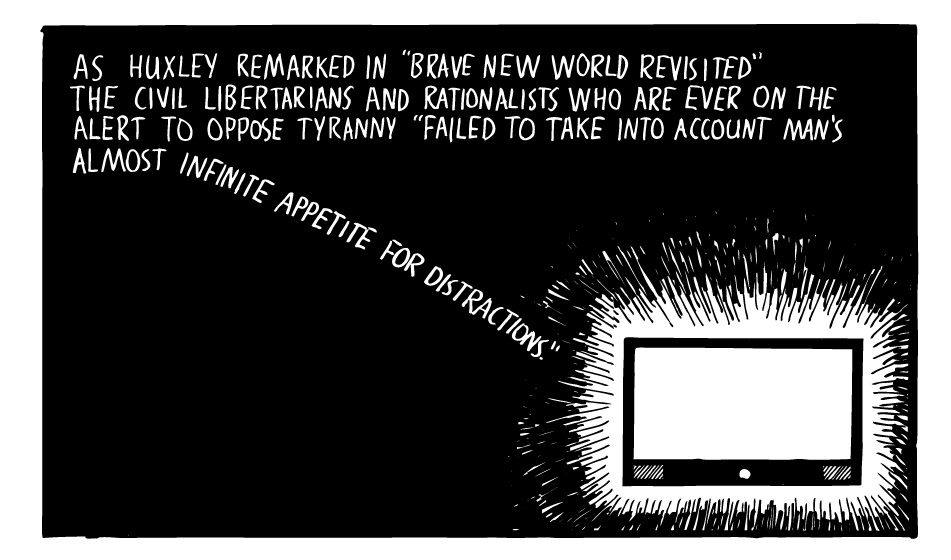
"Amusing Ourselves To Death"
Excerpts
http://www.goodreads.com/work/quotes/2337731-amusing-ourselves-to-death-public-discourse-in-the-age-of-show-business

Neil Postman: Keen Connector Of History, Technology And Consciousness
http://paxonbothhouses.blogspot.com/2012/08/neil-postman-keen-observer-of.html

Neil Postman
Wikiquotes
http://en.wikiquote.org/wiki/Neil_Postman
More Postman quotes at bottom of post.



"People in distress will sometimes prefer a problem that is familiar
to a solution that is not."
Neil Postman
Alan: We prefer the devil we know to the one we know not.
Often, however, "the devil we know not" is not a devil at all
but projection of our current bedevilment.
Almost always, addicts mistake another dose of poison as cure.
to a solution that is not."
Neil Postman
Alan: We prefer the devil we know to the one we know not.
Often, however, "the devil we know not" is not a devil at all
but projection of our current bedevilment.
Almost always, addicts mistake another dose of poison as cure.
Best Pax Posts On Psychological Projection And "The Shadow"
Best Pax Posts On Psychological Projection And "The Shadow"

Alan: To read a book properly, we must re-write the book,
making interlinear "notes" from start to finish.



“My brother, Cecil Edward Chesterton, was born when I was about five years old; and, after a brief pause, began to argue. He continued to argue to the end. . . . I am glad to think that through all those years we never stopped arguing; and never once quarrelled. Perhaps the principle objection to a quarrel is that it interrupts an argument.” G. K. Chesterton, Autobiography
Alan: My sister, Janet Archibald -- who taught at Rochester, New York's most impoverished inner city school for 33 years, and over that time regularly saw former students on the nightly news at one end (or the other) of a smoking gun -- held that "Violence is a language problem. Without sufficient mastery of words to navigate conflict, once somebody shouts "Fuck yo mama!" there is nothing left to do but pick up a gun and shoot it.

Instruction And Education Aim At Antipodes

"The scientific method," Thomas Henry Huxley once wrote, "is nothing but the normal working of the human mind." That is to say, when the mind is working; that is to say further, when it is engaged in corrrecting its mistakes. Taking this point of view, we may conclude that science is not physics, biology, or chemistry-is not even a "subject"-but a moral imperative drawn from a larger narrative whose purpose is to give perspective, balance, and humility to learning.
Neil Postman
"Educators may bring upon themselves unnecessary travail by taking a tactless and unjustifiable position about the relation between scientific and religious narratives. We see this, of course, in the conflict concerning creation science. Some educators representing, as they think, the conscience of science act much like those legislators who in 1925 prohibited by law the teaching of evolution in Tennessee. In that case, anti-evolutionists were fearful that a scientific idea would undermine religious belief. Today, pro-evolutionists are fearful that a religious idea will undermine scientific belief. The former had insufficient confidence in religion; the latter insufficient confidence in science. The point is that profound but contradictory ideas may exist side by side, if they are constructed from different materials and methods and have different purposes. Each tells us something important about where we stand in the universe, and it is foolish to insist that they must despise each other."
Neil Postman
Amusing Ourselves to Death is a great book written by Neil Postman in 1985. A very effective summary is provided by this comic. Are we gonna be killed by our “infinite appetite for distractions”? Postman basically referred to television, but what about the Web, paradise of non-stop and always available distractions?
According to Postman, we have become data gatherers, a role increasingly indistinguishable from garbage collector.


How To Watch TV News
Excerpts
http://www.thirdworldtraveler.com/Broadcast_Media/HowToWatchTVNews.html
When two human beings get together, they're co-present, there is built into it a certain responsibility we have for each other, and when people are co-present in family relationships and other relationships, that responsibility is there. You can't just turn off a person. On the Internet, you can.
Neil Postman
Alan: Unless one uses the internet chiefly as a print library,
it becomes self-directed television, increasingly subject to self-delusion.

No comments:
Post a Comment